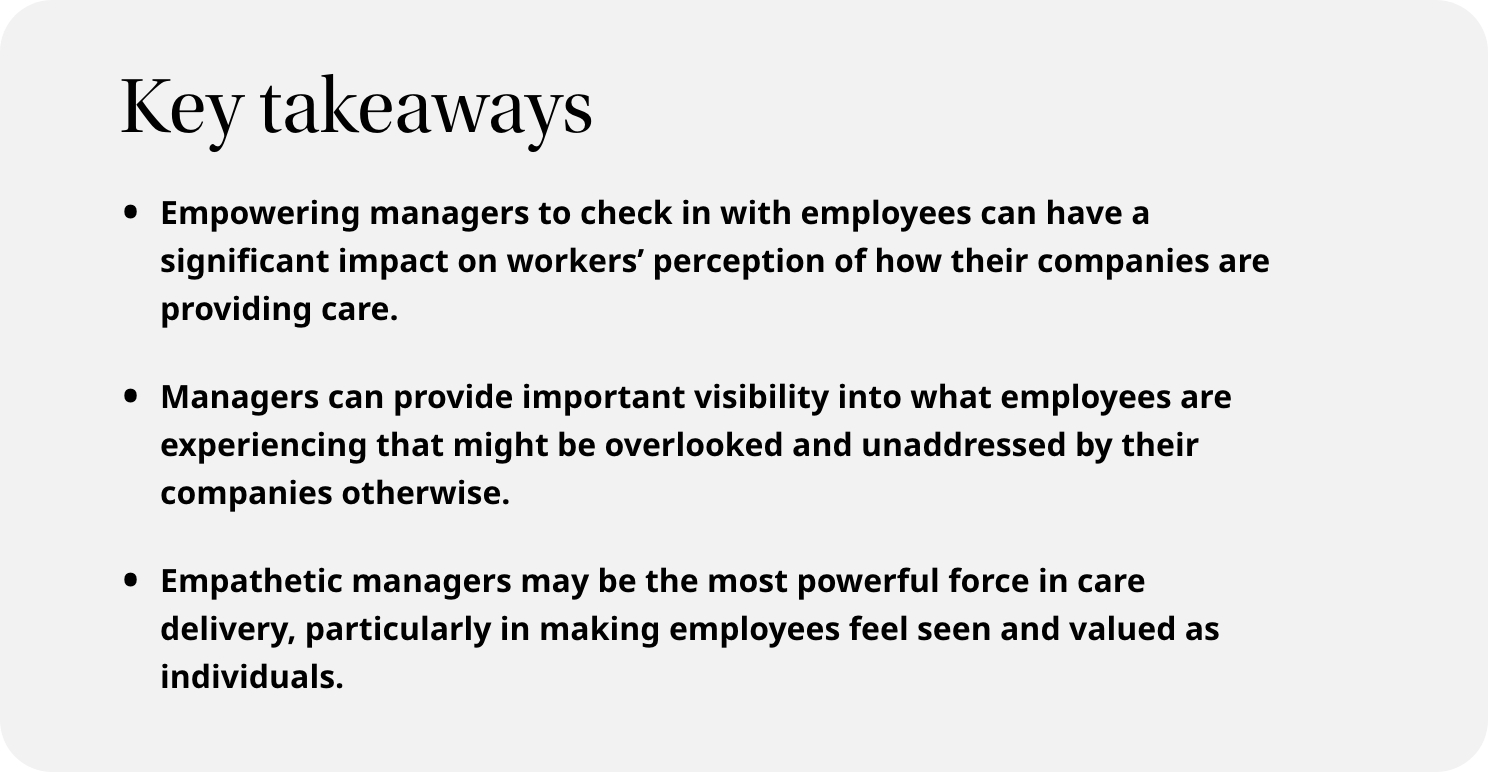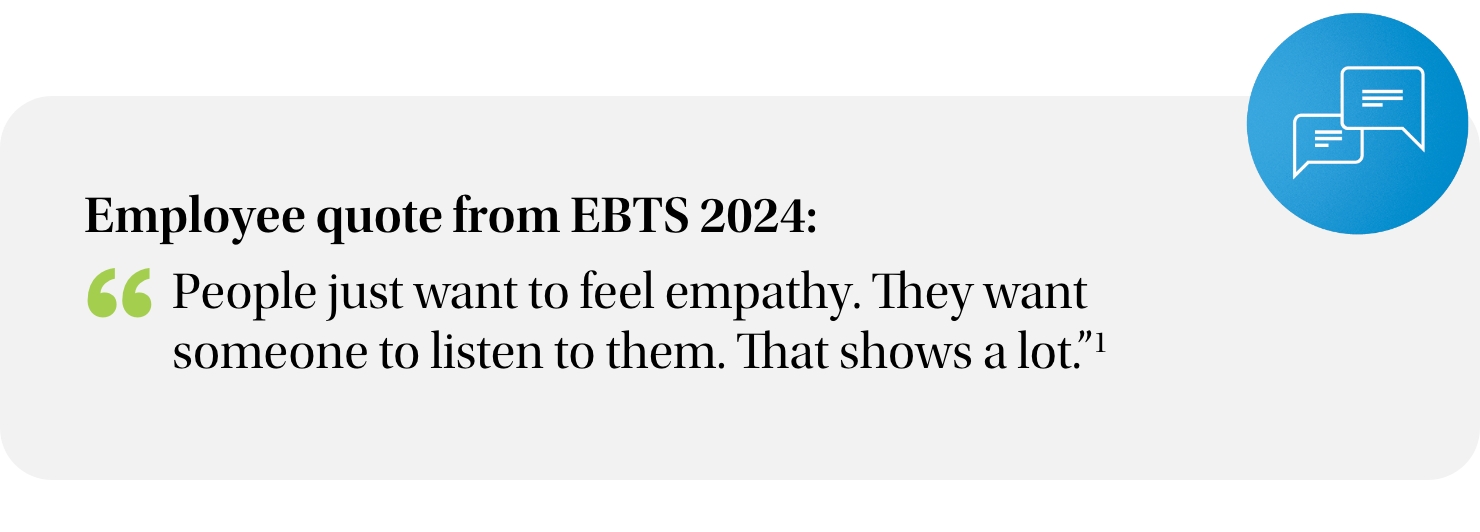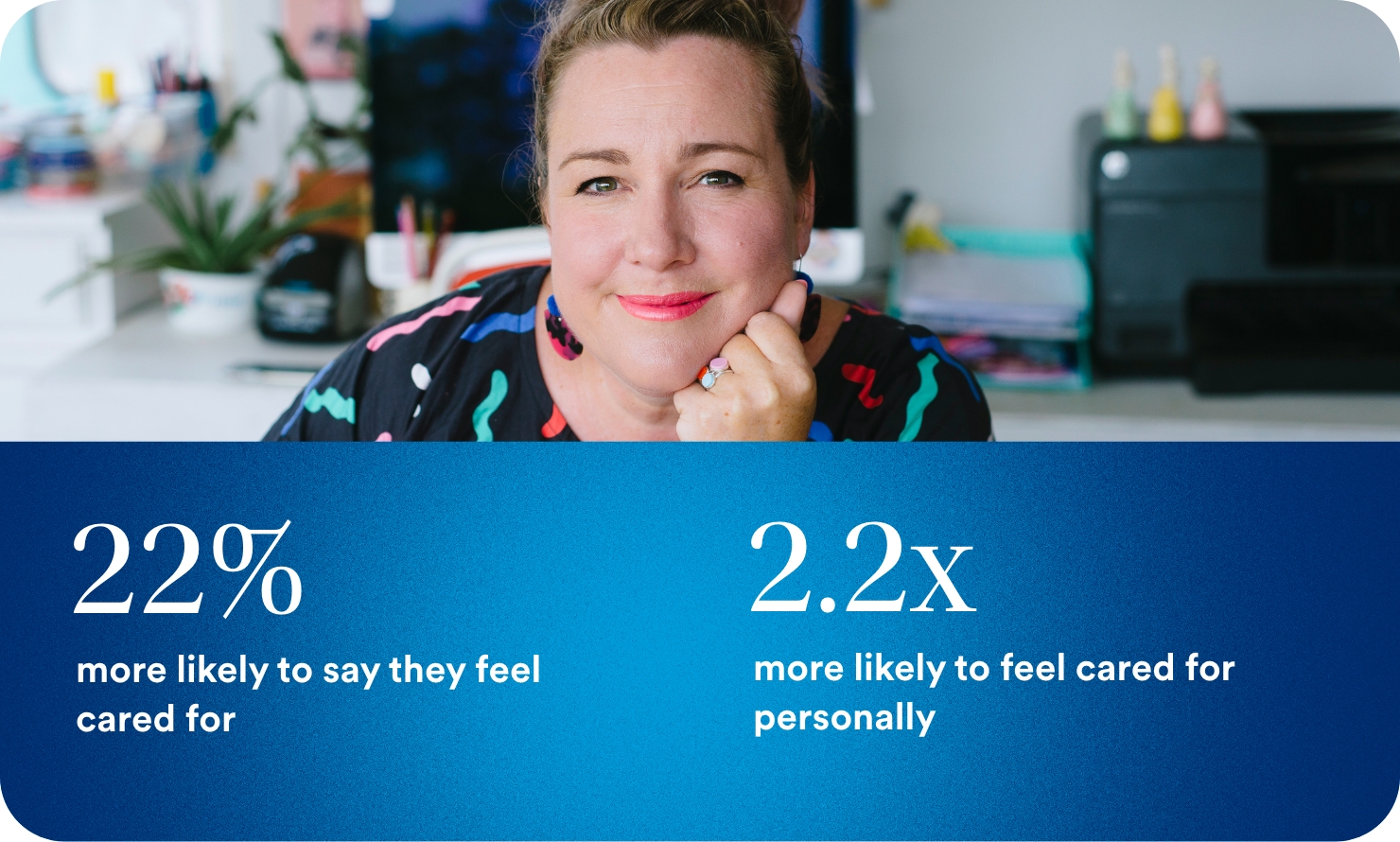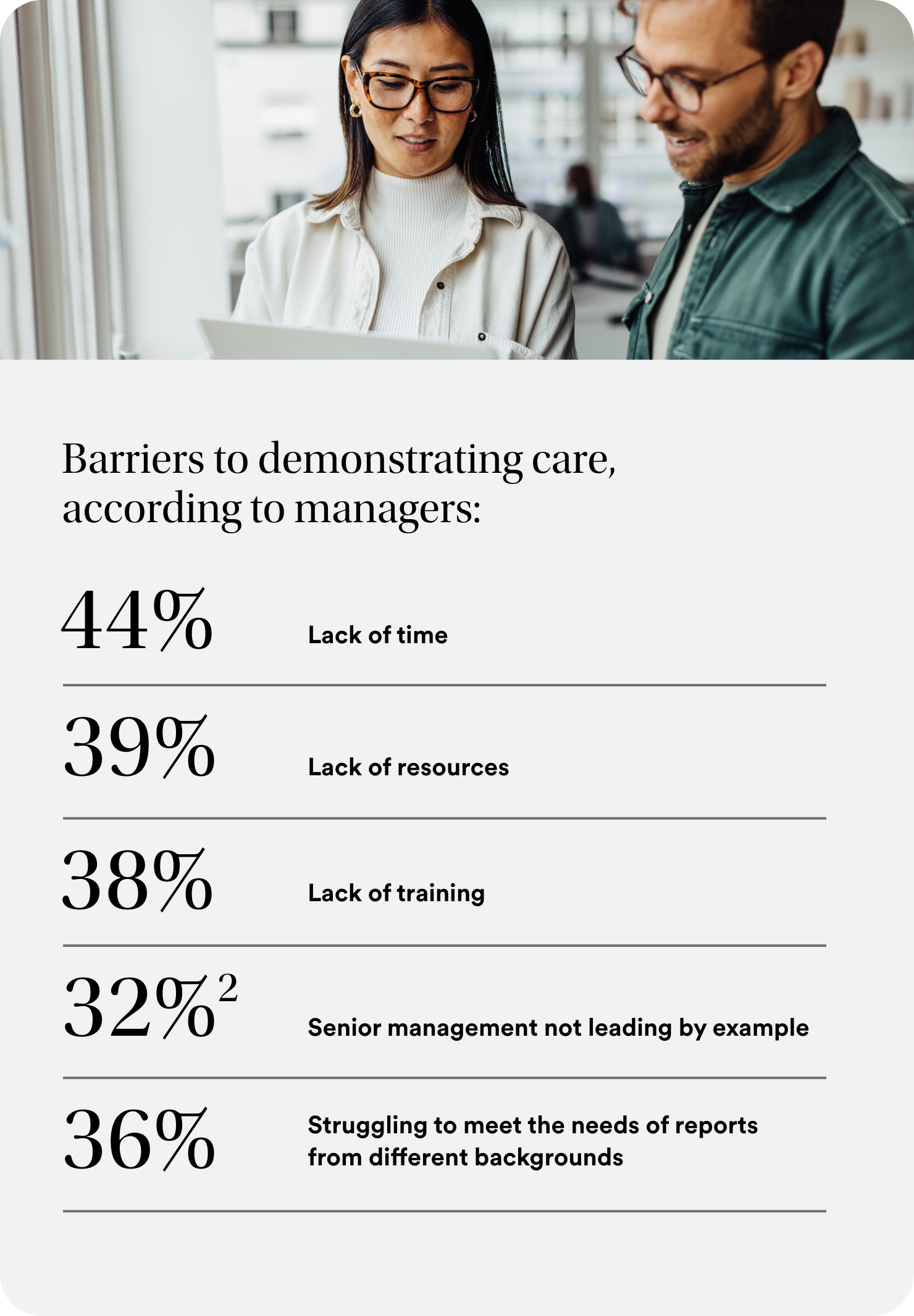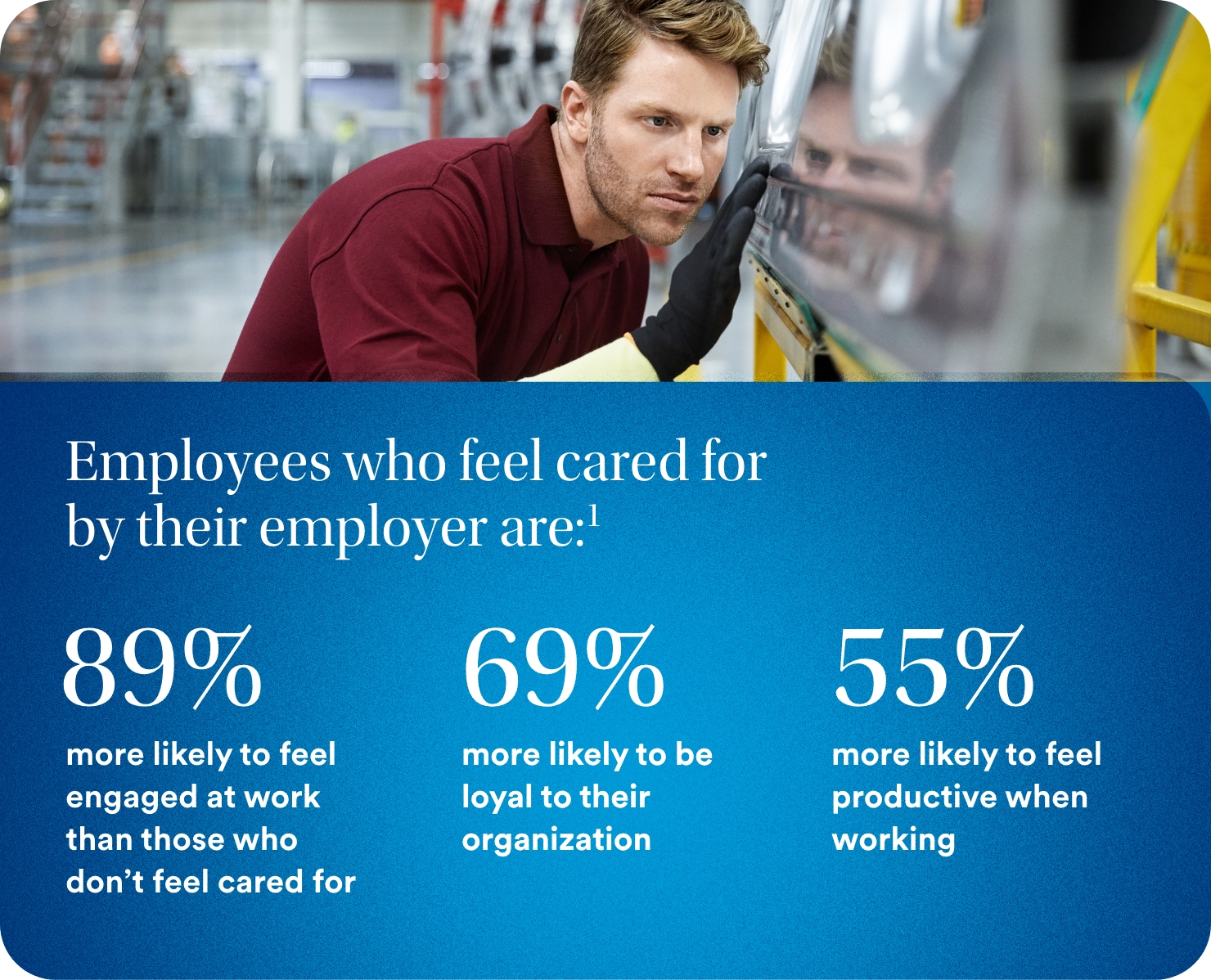The Whole Employee
Being trustworthy has always been important for employers but of late it has become an even more valuable currency when dealing with employees. Trust in the nation’s institutions has continued declining, buffeted by polarized politics, economic uncertainty and geopolitical and environmental crises, a feeling of being at the mercy of numerou s institutions with little interest in their well-being.
In such an environment it’s no surprise that employees are turning to the companies they work for to offset the empathy deficit experienced in other areas of their lives. Evolving social trends continue to influence how they feel and what they expect from their companies beyond typical workplace experiences. As reported by a 2023 article on empathetic leadership, “Empathy is recognized as a crucial element for building trust and supporting mental health in the workplace.”
How does empathy contribute to positive workplace relationships? Why is understanding empathy crucial for managers as well as HR decision makers? And how can that understanding help companies foster an empathetic culture?
Putting a human face on company care
Our 2024 Employee Benefit Trends Study indicates that many employers have invested in benefits and resources that help meet employee expectations for care at key moments, including those that are easily recognizable by employers, can be planned for, and are generally perceived as positive. For instance, training and development and social and supportive cultures are the elements of the employee experience where employees are likely to say that they feel cared for.
Of course, care strategies will vary considerably based on organizational priorities, cultures, and the composition of the workforce. Still, our research reveals a number of principles and common themes that employers can keep in mind as they devise care strategies to support employees in the full range of work and life moments. Flexibility, a supportive culture, and purposeful work are critical in driving perceptions of care.
That said, it cannot be overstated that empathetic managers are the tip of the spear in care delivery, particularly in making employees feel seen and valued as individuals. Indeed, it is imperative for employers to recognize the importance and value of managers with strong interpersonal and communication skills. By empowering and equipping managers to check in with employees who may be facing challenging situations and help them feel comfortable, employers can have a substantial impact on worker perceptions of care.
How ‘always on’ care helps managers activate empathy
Often there is a vast difference between the care provided by employers and the perception of that care by employees when it is needed most. These “care gaps” are especially pronounced for negative moments, when employees may face greater stress and difficulties.
Employers should be aware of high-incidence, high-impact moments, which may result in large care gaps, as is the case for employees who experience harassment or bullying. To gain insight into important events in employees’ personal lives and at the workplace, employers should promote cultures that encourage open communication and psychological safety. A psychologically safe environment helps facilitate always-on care in that employees can feel comfortable voicing their needs and using all of the resources that employers make available to them.
The reality is that those moments are often invisible to employers. For example, feelings of burnout, suddenly being thrust into the role of primary or sole income earner, sudden loss of a family member, friend, or even a pet are all experiences that prompt employees to seek support but may go unnoticed by their companies. Yet our research shows that employees who are aware of and use their benefits feel more cared for in such key moments.
Employers are challenged to demonstrate care if employees don’t understand how to use the benefits they have when they need them. So, managers can play a key role to play by checking in with employees and making them feel comfortable. But many employees feel their managers do not implement organizational initiatives to demonstrate care. Many are uncomfortable, untrained, or simply unfamiliar with the benefits their organizations offer and as such are unequipped to have conversations about them with their direct reports.
When managers deliver consistent care employees are:
Manager support is critical to success
Supporting managers by equipping them with the knowledge and tools needed to talk to their direct reports about what’s available to them can be a powerful way for organizations to not only demonstrate empathy but see a real return on the benefits they invest in. It will motivate engaged managers to communicate – non-intrusively – with workers and position them to capture information so companies can appropriately respond to employee expectations for care.
In so doing, companies will be better able to utilize always-on care strategies in ways that effectively address the fundamental realities of the employee experience: the blurring of boundaries between work and home; the recurrence of events beyond their control; and the impact of different experiences on employee well-being and attitudes. Managers also have a key role to play, primarily by checking in with employees and making them feel comfortable. Access to mental health programs and resources, for example, offers a “first stop” for employees feeling burned out.
But having these kinds of interactions isn’t likely to come naturally. Organizations that want managers to take on this responsibility have to support them and demonstrate their commitment to doing so. A full 80% of managers, who comprise a critical conduit for demonstrating care, say they face a variety of barriers that must be overcome if they are to connect with and show care for employees.
Also, for managers to tap into the power of benefits to demonstrate organizational empathy, training them so that they know which benefits to discuss when talking to direct reports is key. For example, talking to employees considering adoption about legal plans or mentioning the availability of disability benefits in the wake of a long-term medical challenge are situations in which employees will feel that their concerns are being dealt with empathetically.
The business imperative for demonstrating workplace empathy
Effective delivery of employee care matters because it drives successful business outcomes in employee productivity, engagement, job satisfaction and loyalty. It also helps attract the top-tier talent organizations desire, while enhancing the “street level” reputation of the company.
With an increasingly heterogeneous workforce, employers across industries are challenged to satisfy the needs of workers from different generations, races, cultures and lifestyles. Distinct groups of employees can have very different expectations of the work environment, and the benefits offered. The ever-evolving needs of different populations make it hard for employees to provide the offerings everyone would like to see, thus underscoring the need for managers to have their ear to ground and participate actively in helping organizations deliver care.
Employers and managers must work together to activate the power of always-on care to provide demonstrable evidence of their organization’s commitment to being empathetic and supportive. Identifying strategies for different events and zeroing in on moments to do so in the overall employee lifecycle will prove fruitful in ways large and small as the workplace continues to evolve.
To learn more about the importance of benefits in helping companies demonstrate their commitment to building an empathetic workplace, and how to effectively respond to rising employee expectations, download MetLife’s 2024 Employee Benefit Trends Study now.

